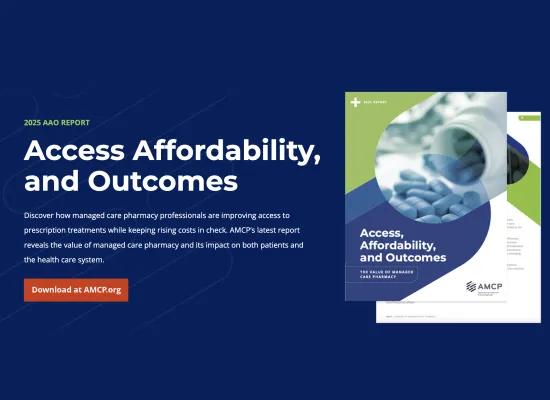
Pharmacy Organizations Seek Broad Stakeholder Feedback by Sept. 16 on Draft Standardized Framework for Documenting MTM Services Using SNOMED CT Codes
Alexandria, Va., August 18, 2016 — The Academy of Managed Care Pharmacy (AMCP), the Pharmacy Quality Alliance (PQA), and the Pharmacy Health Information Technology (PHIT) Collaborative this week released a draft standardized framework for documenting medication therapy management (MTM) services using SNOMED CT (Systematized Nomenclature of Medicine: Clinical Terms) — a standard clinical terminology used for the electronic exchange of clinical health information and reporting of clinical quality measures.
The three organizations are seeking stakeholder comments on the recommendations by September 16, 2016. View the recommendations, which are contained in a draft proceedings document.
SNOMED CT is becoming the gold standard for documenting diagnoses, procedures and other clinical information. The coding standard is fundamental to an interoperable electronic health record (EHR) and reflects the country’s increasing shift toward providing and recording value in health care.
Recognizing its growing importance, the three national pharmacy organizations convened a multi-stakeholder meeting last month to develop consensus definitions for MTM services and to develop draft MTM Value Sets. Value Sets are a selection of codes used for documenting clinical information within health care software.
Stakeholders at the meeting included Medicare Part D sponsors, MTM vendors, technology vendors, community MTM providers, pharmacy professional organizations, EHR vendors, integrated delivery networks, and academia. Representatives from the Centers for Medicare and Medicaid Services, Center for Medicare and Medicaid Innovation, and Office of the National Coordinator also participated in the meeting as observers.
The draft framework addresses two principle goals:
- Short-term: Provide a consensus-based standardized framework for Medicare Part D sponsors participating in the Enhanced MTM Model to report data using SNOMED CT codes in a meaningful manner beginning with the initiation of the program. The intent is to promote interoperability and provide efficiencies in analyzing the data to determine which innovative approaches provide the greatest benefit to Medicare Part D beneficiaries.
- Long-term: Provide a consensus-based standardized framework to use SNOMED CT codes for the documentation of all MTM services. In addition, to provide an ongoing process for refining the standardized framework as MTM services evolve over time.
About AMCP:
The Academy of Managed Care Pharmacy (AMCP) is a national professional association of pharmacists and other health care practitioners who serve society by the application of sound medication management principles and strategies to improve health care for all. The Academy’s roughly 8,000 members develop and provide a diversified range of clinical, educational and business management services and strategies on behalf of the more than 200 million Americans covered by a managed care pharmacy benefit. www.amcp.org
About PQA:
Established in 2006, PQA represents pharmacy providers, pharmacy benefit managers, health plans, academia, consumer advocates, community pharmacies, health technology vendors, pharmaceutical research and manufacturing companies, and other stakeholders interested in improving the quality of the medication use system. PQA provides a leadership role in identification and selection of metrics for evaluating the quality of the medication-use system, provides education on quality improvement, and connects pharmacists to healthcare improvement initiatives. www.pqaalliance.org
About Pharmacy HIT Collaborative:
The Collaborative is focused on influencing the structure, development and implementation of the U.S. health HIT infrastructure to assure safe, efficient and effective medication use through pharmacist-provided patient care services working with the interdisciplinary patient care team. Founded by nine pharmacist organizations, the Collaborative seeks to ensure that the pharmacist’s role of providing patient care services is integrated into the National HIT interoperable framework. The founding organizations of the Collaborative represent pharmacists working in all patient care settings within the health care system, in addition to many other facets of pharmacy including pharmacy education and pharmacy education accreditation. www.pharmacyhit.org
Featured News & Resources
See Full CalendarAward Applications Open
AMCP eLearning Day: Nexus Encore
AMCP 2026 Registration Opens
Upcoming Events
AMCP offers a wide variety of educational opportunities, from events and webinars to online training.







